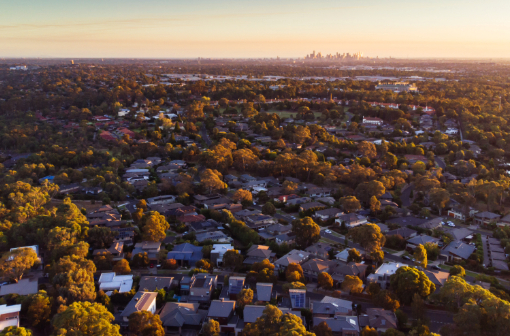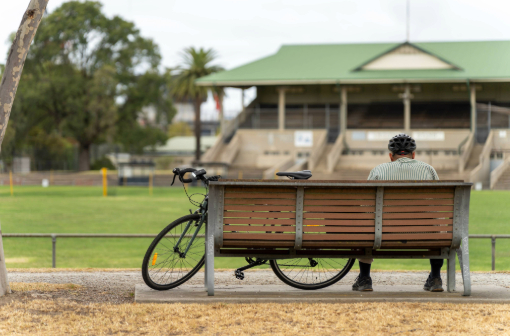“Psychological safety is quite complex, it’s not as obvious as a slip hazard or a fall. But if we don’t treat people’s experience with respect and provide a psychologically safe environment, they’re just simply not going to be as productive.” – Suzanne Leckie.
Safety is critical to human survival – we wouldn’t be here as a species if we weren’t wired with an in-built desire to stay safe and avoid trouble. Humans have risen to the top of the food chain by ensuring our safety above all else. But as we have evolved, so too has our sense of safety and the varying forms that it takes.
According to the Australian Unity Wellbeing Index – a 20-year study into the wellbeing of Australians, conducted in partnership with Deakin University – it’s important for us to feel safe in our homes, workplaces and communities. So important, in fact, that the Wellbeing Index considers safety to be one of seven key domains, or factors, of wellbeing.
So, while we no longer have to worry about being eaten by a lion or chased by a bear in our everyday lives, we do need to safeguard the factors that support our wellbeing. From physical safety, to how we feel psychologically and beyond, we explore what it means to feel safe and the impact this has on our overall wellbeing.

Fight or flight? The importance of physical safety
When it comes to feeling safe, we often think about our physical self first. Keeping ourselves and family physically safe is the most important element of human survival, but it’s also vital to our ability to thrive. Without a sense of physical safety – both individually and more broadly as a community – we are unable to focus on other factors that support our wellbeing.
When you feel as if you’re in a position of physical danger, your fight-or-flight reflex kicks in. This primitive survival technique forces us to make decisions on our immediate responses to threats, real or perceived.
While the physical dangers we face now are very different to those of our ancestors, creating physically safe spaces in our homes, workplaces and communities is one of – if not the most – important elements of wellbeing. But it’s not the only thing you need to feel safe…
The complexities of psychological safety
“Physical safety and psychological safety go hand in hand. If you don't have physical safety, it’s going to be pretty hard to have psychological safety and, likewise, if you can’t find psychological safety you’re going to keep feeling physically unsafe,” explains Jessica Stott, Service Delivery Manager at WIRE. An Australian Unity partner, WIRE provides information, support and referrals to Victorian women, non-binary and gender-diverse people.
A sense of psychological or mental safety is integral to humans being able to assess situations and then make informed decisions about their lives. When we feel mentally safe, we’re able to build resilience, which Jessica says is key to helping us develop and progress.
“Resilience gives us the confidence to try new things, to challenge ourselves and grow,” says Jessica.
Suzanne Leckie, Organisational Wellbeing Manager at the Country Fire Authority (CFA), says that the changing attitude towards mental-health conversations within the emergency services sector has been vital to building a safer workplace.
“There’s a growing understanding now that psychological safety is equally as important as physical safety. Psychological safety is the thing that prevents psychological injury, and that’s something that’s really prevalent in emergency services.”
Understanding the importance of mental health and creating a psychologically safe environment is crucial to protecting people at work, but also people in the community more broadly.
“Psychological safety is quite complex, it’s not as obvious as a slip hazard or a fall. But if we don’t treat people’s experience with respect and provide a psychologically safe environment, they’re just simply not going to be as productive,” explains Suzanne.

A community safety net
We’ve all experienced a time when we’ve leaned on others for support. Whether it’s emotional support after a break-up, physical support when we’re ill, or psychological support after a traumatic event, having a safety net to catch us is an important factor in our overall sense of safety.
Suzanne says that working in a highly dangerous job, such as emergency services, requires a different level of stamina. Mental health a key focus, and an important element in coping with the stress of the job is having a group of people who understand the situation. Finding safety in a group setting with people who share your experience is vital to coping with stress, anxiety or other psychological stressors.
“Emergency services are renowned for their dark humour. It’s not about disrespect, it’s a coping mechanism that allows them to separate themselves from whatever trauma it is they’ve just experienced,” she explains.
Processing trauma with people who have had the same experience helps ease to the burden, and often reduces anxiety in the aftermath.
“Most people don't want to go home and talk about it – they want to keep their home protected from the things they experience in the workplace. It’s really important to have that buffer with your colleagues who understand it... so when you do go home you can normalise yourself,” says Suzanne.
Without this safety net, the person carrying the trauma can feel as though they’re isolated in their feelings or experience – which can decrease their wellbeing. Being involved in a group or community who share your experience, or having access to a support network to help you through, is therefore critical.
Financial safety – a lifeline
Financial control is one of the key factors that support our wellbeing – and for good reason. However, feeling financially safe is different from being in financial control.
Financial safety is not about being able to manage debt; rather, it’s about access to finance, financial literacy and a sense of financial independence, which can be a lifeline for people in dangerous situations.
At WIRE, Jessica sees this day in and day out. She explains that women attempting to leave abusive relationships often rely on their partner financially, which forces them into unsafe living situations because they don’t have financial security of their own.
“The way we view it at WIRE in an intersectional framework is that it’s the lack of equity that creates barriers for people achieving safety,” says. Jessica. “It’s not that people don’t have plans or don’t want to leave, it’s that there are barriers stopping those plans from coming to fruition.”
Developing a financially safe environment, where individuals are able to build their financial literacy, is therefore key to helping them achieve increased overall safety – and, in turn, wellbeing.
Our sense of safety relies heavily on a number of factors. From our physical safety to the support networks that help us cope with stress, every aspect of our sense of safety impacts on our wellbeing in some way. Learning how to manage and engage in safer practices across the spectrum will drastically improve our physical and mental health, ultimately helping us to support our overall wellbeing.
Disclaimer: Information provided in this article is of a general nature. Australian Unity accepts no responsibility for the accuracy of any of the opinions, advice, representations or information contained in this publication. Readers should rely on their own advice and enquiries in making decisions affecting their own health, wellbeing or interest.


